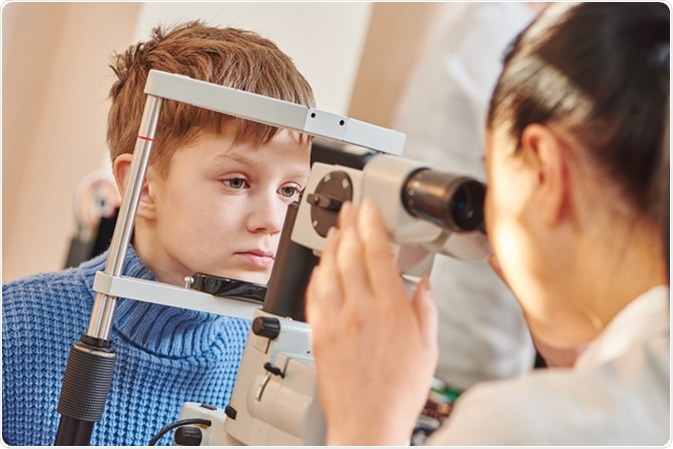Is Refractive Surgical Treatment Right for You? Variables to Think About for Better Eyecare
In the realm of eye treatment, the decision to go through refractive surgical treatment is a substantial one that demands thoughtful consideration. From the complexities of one's ocular health to the complexities of daily habits and individual assumptions, each element holds value in the broader landscape of refractive surgery candidateship.
Eye Wellness Evaluation
When considering refractive surgery, a comprehensive eye health analysis is crucial to assess the viability of the procedure for each person. eye center andalusia. This examination includes a series of evaluations and examinations carried out by an eye care expert to identify the overall health and wellness of the eyes, the presence of any kind of underlying problems, and the stability of the refractive mistake
During the evaluation, different elements are thought about, such as the client's clinical background, existing eye prescription, corneal thickness, student size, and tear movie quality. These evaluations help to recognize any kind of contraindications to refractive surgical procedure, such as corneal abnormalities, cataracts, or untreated eye infections. Furthermore, the analysis assists to take care of individual assumptions concerning the possible outcomes of the surgical treatment based on their special eye characteristics.
Inevitably, the eye health assessment is essential in making certain the safety and effectiveness of refractive surgical treatment, as it supplies useful understandings right into the individual's eye health status and assists figure out one of the most appropriate treatment choices for achieving optimal aesthetic end results. (andalusia pediatrics)
Way Of Life Evaluation
A complete way of life assessment is essential in determining the suitability of refractive surgical procedure for a person's visual improvement needs. Way of living variables such as line of work, pastimes, and everyday activities play an essential function in the decision-making process regarding refractive surgical procedure. For example, people with professions that involve a high level of exercise or direct exposure to environmental elements might have different visual needs compared to those with sedentary workdesk work. Understanding just how a person's way of living may influence their vision post-surgery is necessary for taking care of expectations and making certain optimum outcomes.
Additionally, lifestyle practices such as sporting activities participation, outside tasks, and even skincare routines can influence the recovery procedure and total success of refractive surgical procedure. As an example, individuals who involve in call sporting activities might require to take added precautions to secure their eyes during the recuperation duration. Furthermore, people with extensive sun exposure may need extra post-operative treatment to protect against complications. By conducting a comprehensive way of living analysis, eye care professionals can customize their suggestions and therapy plans to satisfy the special requirements of each individual, eventually bring about boosted visual end results and complete satisfaction.
Expectation Placement

Establishing reasonable expectations entails complete pre-operative conversations between the patient and the eye doctor. The doctor must transparently connect the potential risks, benefits, and limitations of the treatment (cardiologist andalusia). People need to comprehend that while several people achieve 20/20 vision or far better following refractive surgical procedure, some might still require glasses for particular tasks like reading or driving at evening. Managing these expectations aids stop dissatisfaction and frustration post-surgery, resulting in an extra positive overall experience for the person.
Threat Evaluation

Aspects that may boost the risk of difficulties include age, specific clinical conditions like autoimmune illness, unpredictable vision prescription, thin corneas, and unrealistic individual expectations. Furthermore, picking a knowledgeable and skilled specialist, following pre and post-operative care instructions vigilantly, and divulging any kind of relevant case history can help mitigate risks.
To lessen the possibility of issues, eye doctors perform comprehensive pre-operative examinations to recognize any kind of contraindications to surgery. They likewise review the prospective dangers and benefits with individuals throughout the consultation process. By participating in open communication and shared decision-making, both the person and the Learn More eye doctor can function with each other to determine if refractive surgical treatment is the ideal option based upon individual threat profiles and wanted outcomes.
Consultation Significance
Thinking about the critical duty of notified decision-making in assessing risks and potential issues in refractive surgical treatment, the assessment procedure holds substantial value in guiding individuals in the direction of optimal end results. During the examination, the eye doctor evaluates the client's eye health and wellness, refractive errors, and overall viability for surgery. This initial analysis is vital in identifying one of the most appropriate procedure for every person, considering variables such as corneal density, pupil size, and existing eye problems.
Furthermore, the consultation functions as an opportunity for patients to review their assumptions, issues, and any inquiries they may have concerning the surgical procedure. Clear interaction between the client and the doctor is vital to make certain practical assumptions and a complete understanding of the possible dangers and advantages entailed.
Additionally, the appointment allows the surgeon to describe the various surgical options readily available, their particular results, and the post-operative treatment called for. This extensive conversation encourages clients to make educated choices about their eye care, bring about better fulfillment and end results post-surgery.
Conclusion
Finally, individuals taking into consideration refractive surgery must undertake a thorough eye health assessment, examine their way of living habits, straighten their expectations with potential results, evaluate the connected read threats, and focus on appointments with eye treatment specialists. These factors play a vital duty in establishing the suitability of refractive surgery for each individual, guaranteeing optimal outcomes and satisfaction with the treatment.
People taking into consideration refractive surgical procedure commonly have high assumptions relating to the results, expecting perfect vision without the demand for glasses or get in touch with lenses. While refractive surgical procedure can considerably enhance vision and reduce dependence on aesthetic aids, it is essential for patients to recognize that results may vary based on individual variables such as the level of refractive error, corneal density, and general eye health.
By involving in open communication and shared decision-making, both the ophthalmologist and the patient can function together to determine if refractive surgical procedure is the best selection based andalusia pediatrics on private risk accounts and desired end results.
Thinking about the crucial duty of notified decision-making in analyzing dangers and potential difficulties in refractive surgical treatment, the consultation procedure holds significant value in guiding people towards optimum outcomes. During the examination, the eye doctor reviews the individual's eye wellness, refractive mistakes, and total suitability for surgical treatment.
Comments on “Eye Facility in Andalusia: Premier Providers for Vision Treatment”